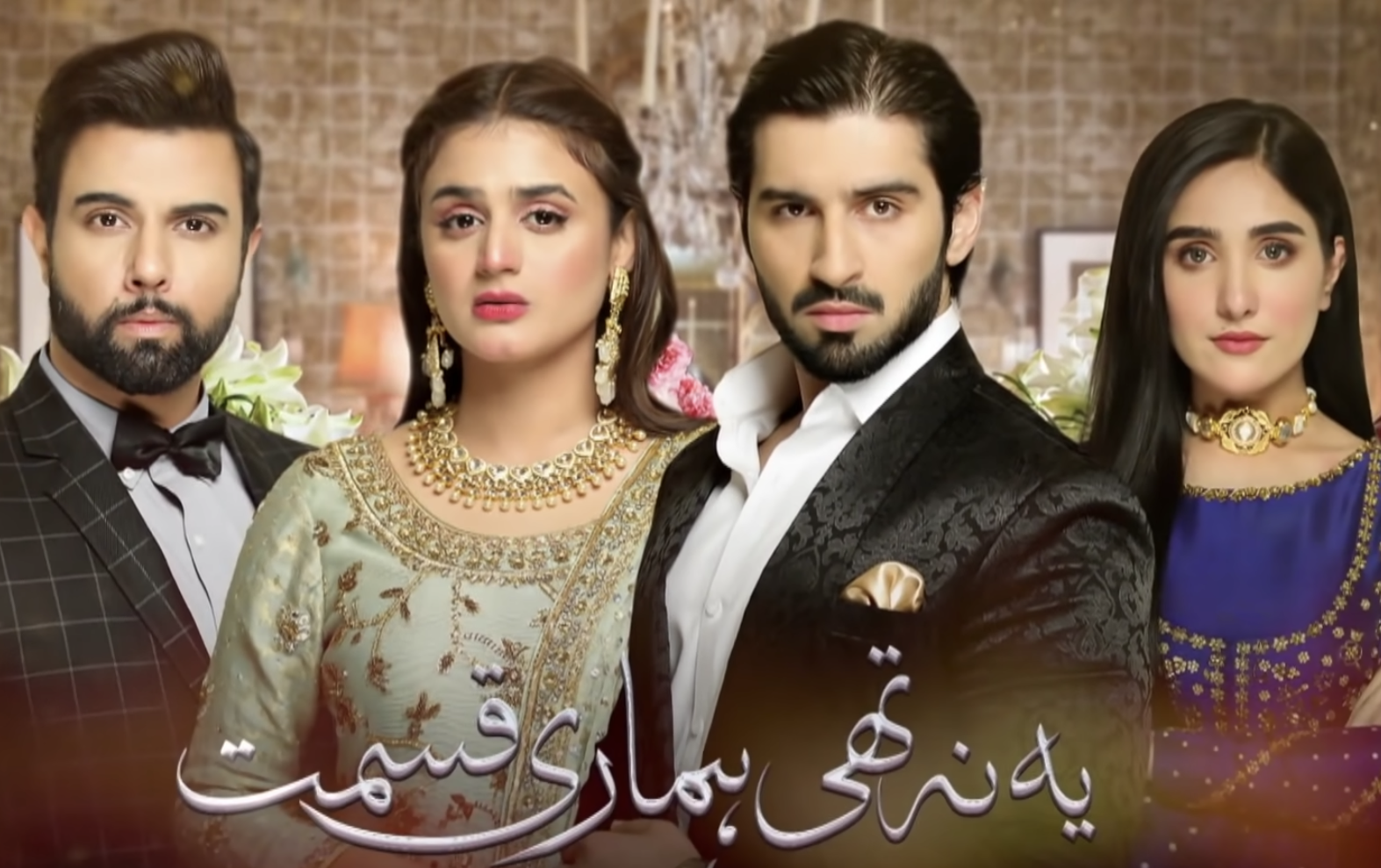Starring Hira Mani, Muneeb Butt, Aiza Awaan, and Noor Hassan, the television show revolving around two sisters married to two cousins is written by Seema Munaf and directed by Syed Ali Raza Usama. The show airs on ARY Digital at 9 pm from Mondays through Thursdays and it’s leading in ratings and has garnered plenty of interest from audiences.
The Plot:
Hira Mani plays Muntaha and Aiza Awaan plays Alishba. Both sisters are as different as day and night: Muntaha is responsible and polite, Alishba is selfish and rude. Muntaha is all set to marry Yasir (Noor Hassan) whereas Ayaan (Muneeb Butt) has some designs on Alishba (Aiza Awaan). A cruel twist of fate happens and Muntaha ends up being Ayaan’s wife. This works out for Yasir who liked Alishba more than Muntaha. Yasir is the responsible boy and Ayaan is an out-of-job frustrated young man. And thus the universe’s order goes into a tizzy as polar opposite people end up being husband and wife.
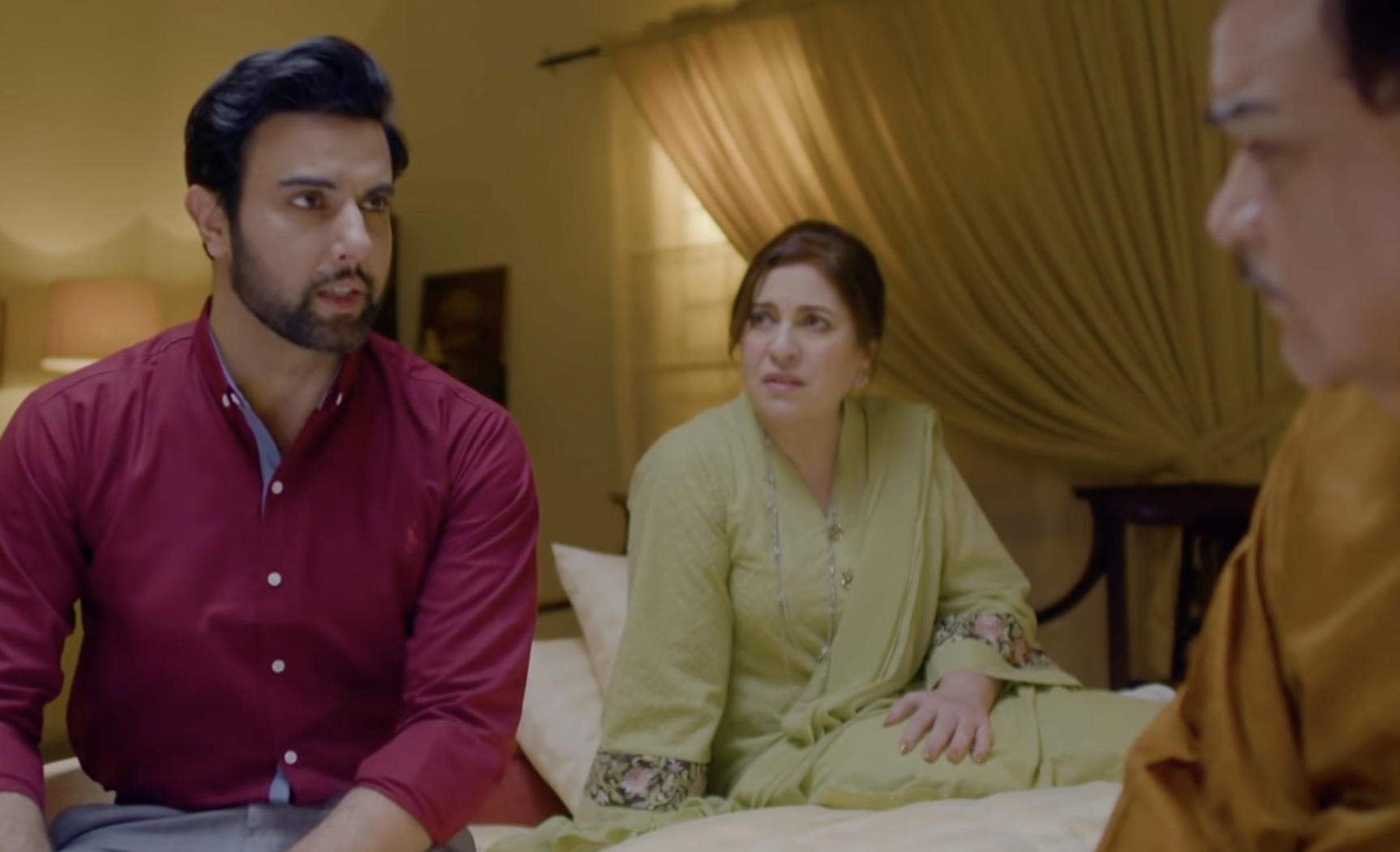
Yasir and Ayaan are cousins who live in the same home. Ayaan’s family (Khaled Anam, Saba Faisal, and Hafsah Butt) live on the upper floor where Ayaan’s mother is constantly whining about how she has no help around the house. Ayaan’s sister Mano is spoilt and lazy and Ayaan’s mother constantly defends her children’s failings in front of the sensible father. Yasir’s parents (Annie Zaidi and Sheheryar Zaidi) are nice enough people but Yasir’s mother also has the same grouse: she needs a bahu to help her around the house.
Yasir and Ayaan’s phuppo and her daughter (Kinza Malik and Kiran Malik) also live in the same house and both of them have nothing better to do except create chaos. All of it is a perfect recipe for disaster.
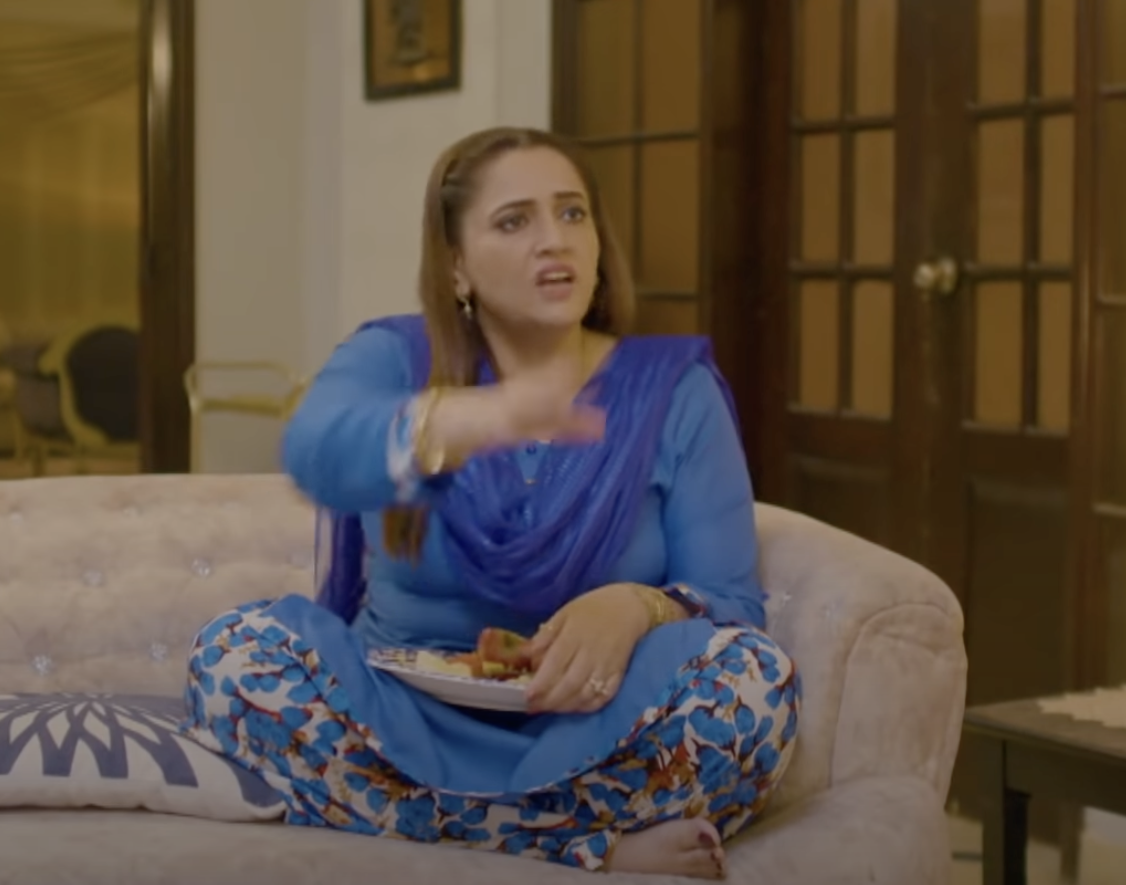
Muntaha and Alishba’s parents (Salma Hasan and Raja Haider) are sweet enough people who try their best to counsel their younger daughter into behaving herself but Alishba is just out of control.
Why It Works:
The plot and the setup are clearly like any other soap or saas-bahu or family/kitchen dramas that our dramas get flak for (I do want to know how many of those people who attack Pakistani dramas for this content are watching Jo Bichar Gaye?) but the clever writing, treatment of the show and stellar performances by everyone make this gloriously familial drama work. Hira Mani’s earnest and gentle demeanor makes you relate to her.
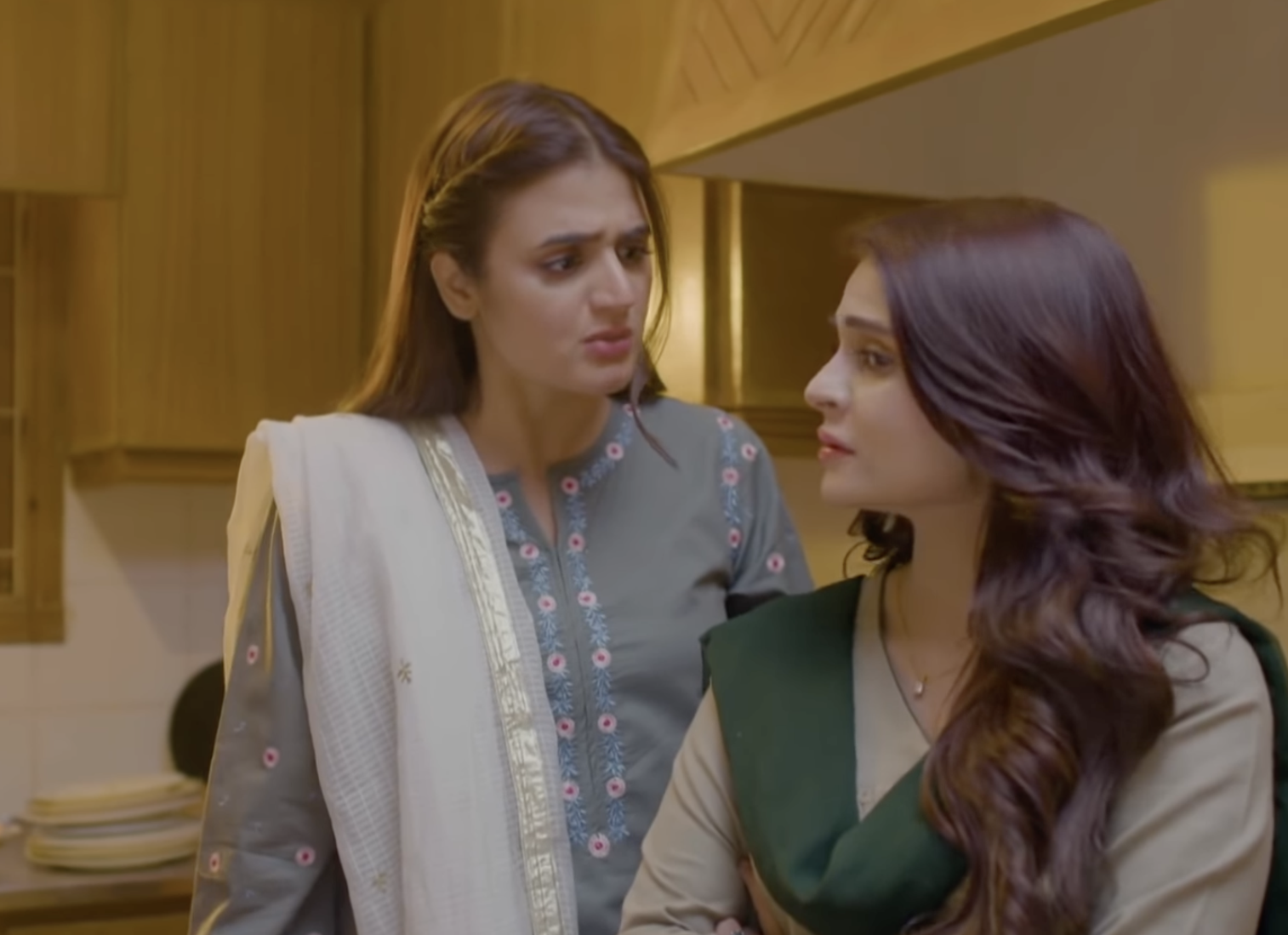
She’s not your average hurt victim but a sane, responsible girl who’s trying to make the best out of a bad situation. She also stands up for herself and is a good person because it’s the right thing to do and because she’s a kind person. Hira Mani is an underrated actress and she’s been given these roles repeatedly so the audiences think that this is all she can do – but that’s not true. You must see Hira in Ibn e Hawwa as well.
Muneeb Butt’s portrayal of Ayaan is well-thought-out and Muneeb has understood the assignment, clearly. His flamboyant clothes, how he keeps it casual but also endearing makes audiences like Ayaan and root for him and Muntaha.
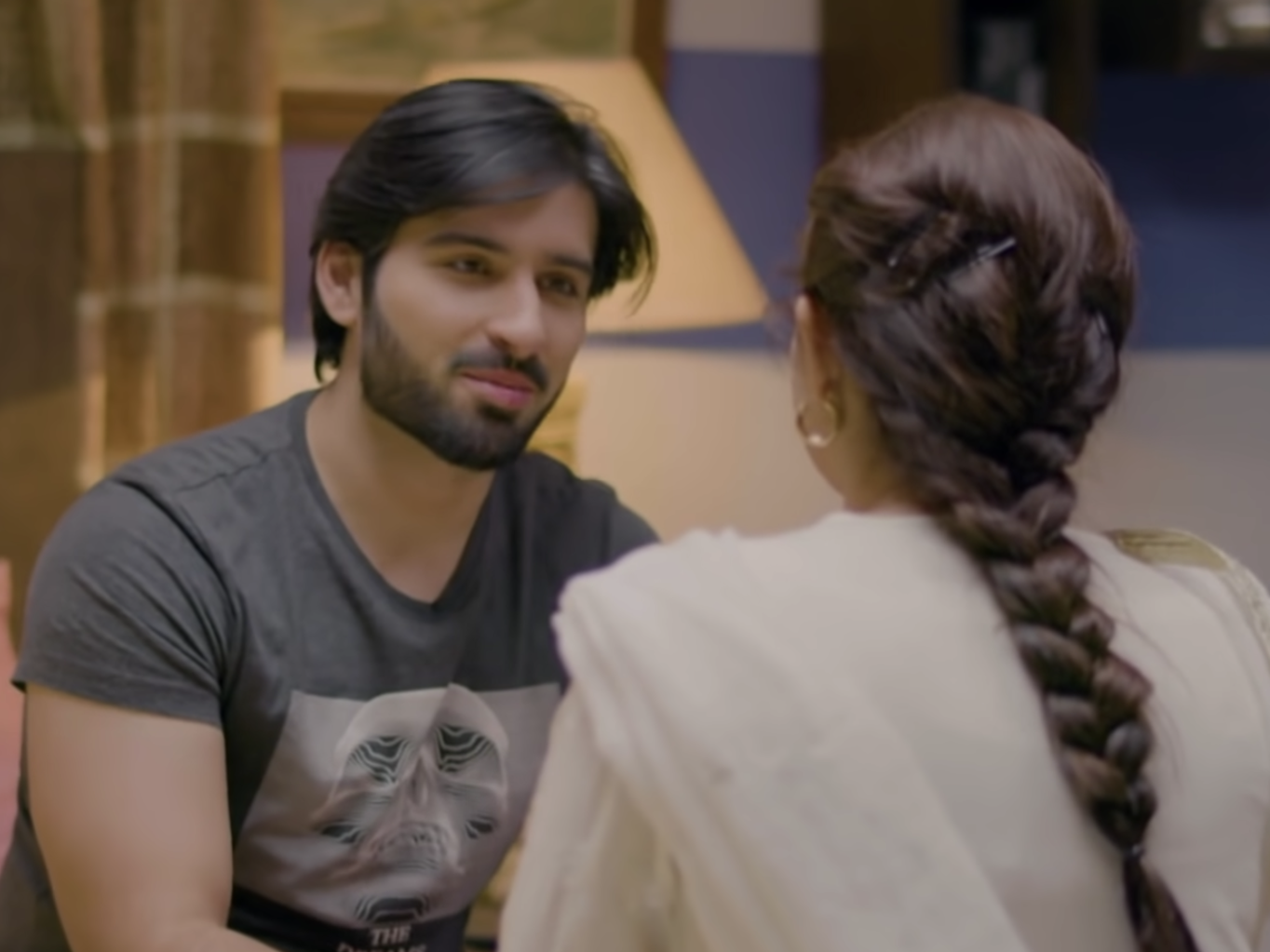
Hira and Muneeb share a wonderful chemistry and despite all your facepalm moments when you just want to go ‘WHY AYAAN WHY’, you still want life to be kind to these two sweet, simple people.

Alishba is shown to be young, selfish and carefree. She wants what she wants when she wants it. The comedy and realism to the character is where she says things most girls would say and raises issues about domestic problems most women today would have a problem with. However, context is important: Alishba has a supportive husband who wants her to take care of herself or be considerate towards other people.
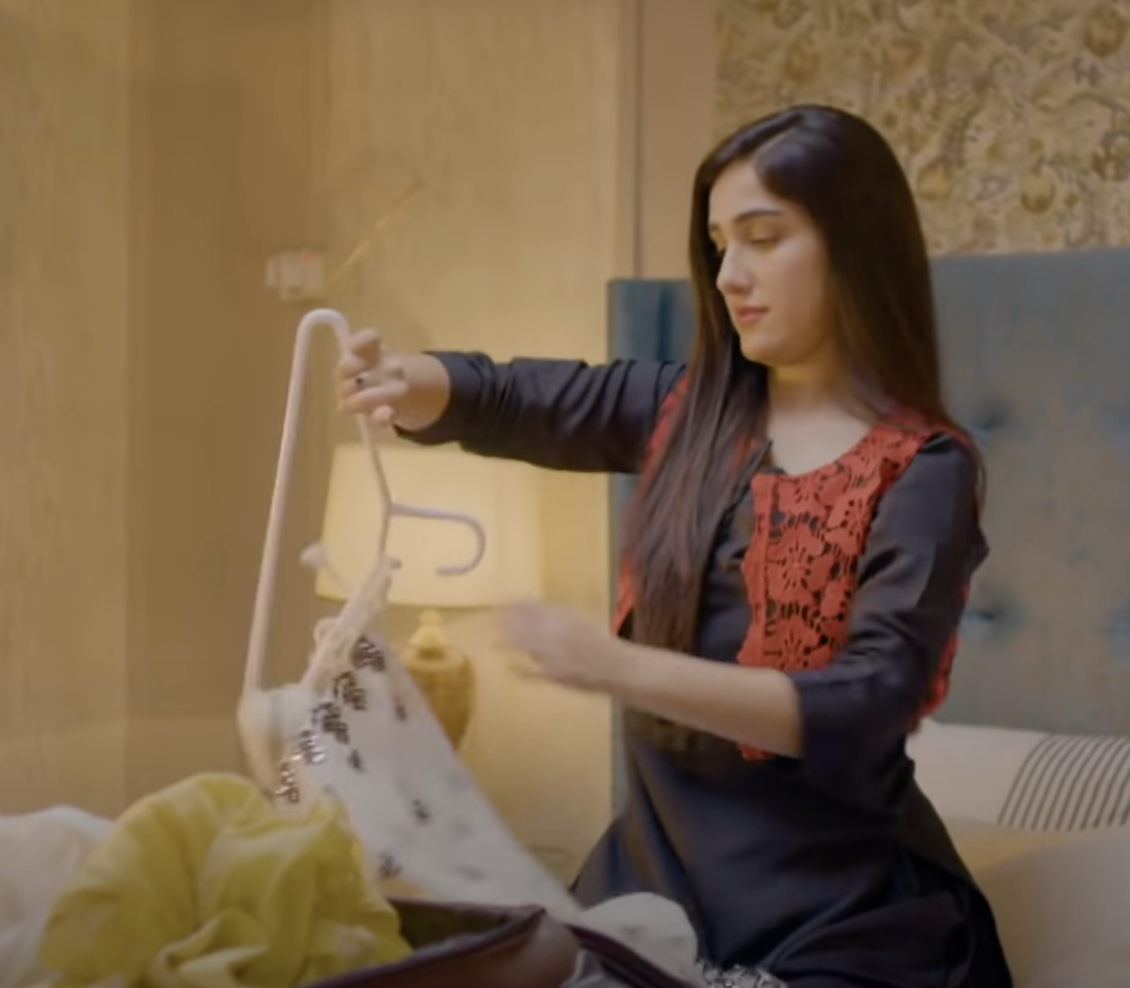
So while you kind of chuckle as Alishba rants at the evil phuppo you also want to knock some sense into this spoilt girl who thinks life after marriage is zero responsibilities and constant shopping and late-night dinners.
Another reason why Ye Na Thi Humari Qismat works is because of the realistic and relatable portrayal of both sets of parents. Saba Faisal, who plays Ayaan’s mother, comes from a generation of women who were constantly told that they shouldn’t ‘praise’ their daughters-in-law because they don’t want the daughters-in-law to feel too good about themselves. It was a toxic controlling pattern that existed in a certain generation. While Saba Faisal’s character appreciates Muntaha behind her back, she always tries to behave like a dictator in front of her and cries victim whenever she’s called out by her husband (Khaled Anam).
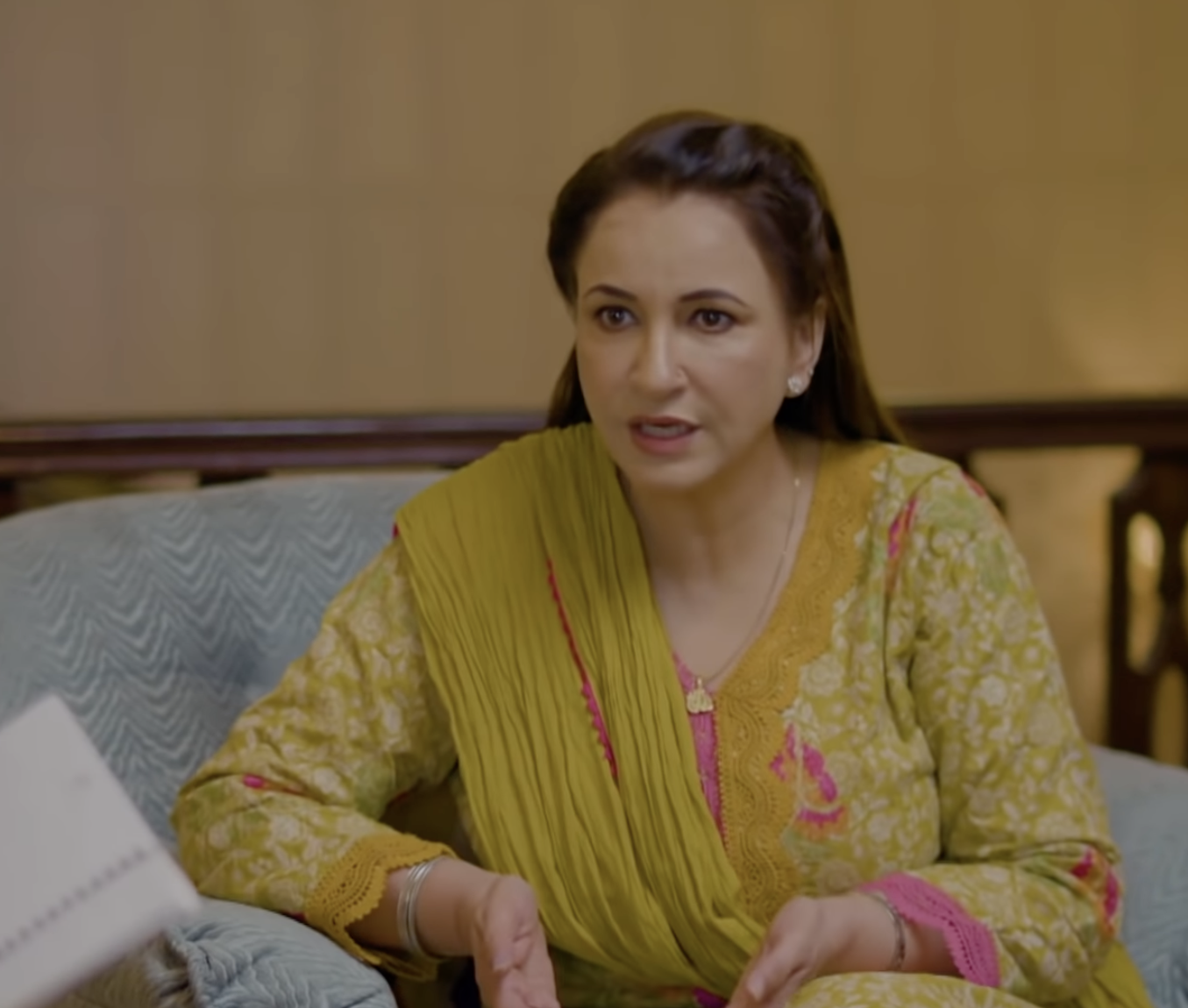
Khaled Anam’s character, aka Ayaan’s father, has repeatedly stated some very good dialogs about not treating a daughter-in-law like a slave or a servant. He is the voice of reason in the show, especially in moments when everyone is losing their minds.

Similarly, Yasir’s father (Sheheryar Zaidi) is also a sane, sensible person who has outrightly rebuffed any idea of violence against women. This is perhaps why the writing gels in perfectly with the performances. It’s written with a lot of nuances and the actors have understood the nuance perfectly and have channelized it into their tonalities and expressions.
Perhaps the few aspects that stick out like a sore thumb is the magnificent setting in which the family is set: the family is squabbling about who will make tea and who will open the door yet they live in a palatial mansion with designer tea sets and sofas and curtains that cost more than the poor actors possibly even make in the show.
That said, the actors’ impeccable performances and the script’s relatability make Ye Na Thi Humari Qismat a good watch and binge-worthy for any drama fan. Ye Na Thi Humari Qismat takes the populist material, adds nuance, and creates fun, watchable, binge-worthy content that you could easily consume.

